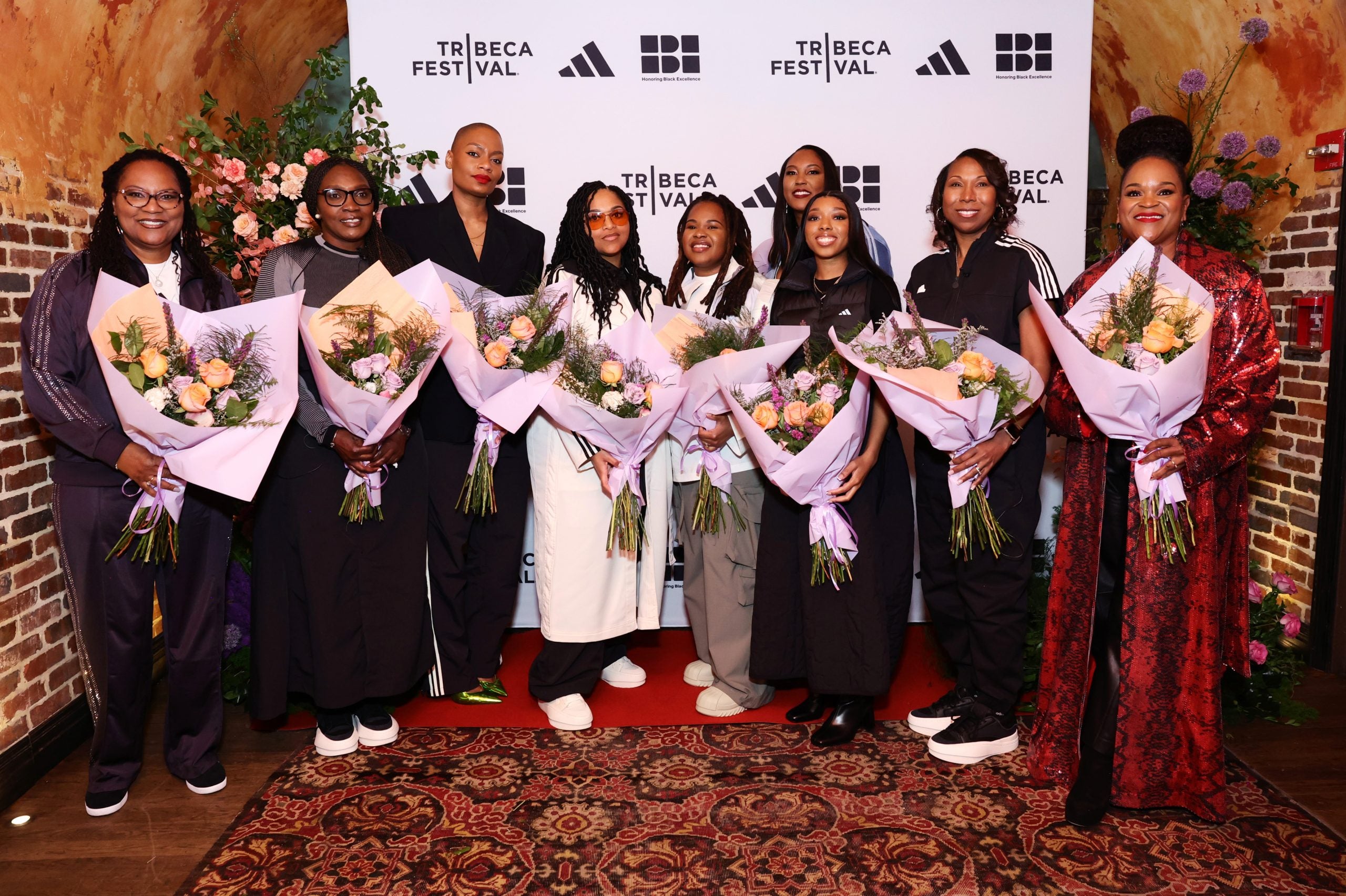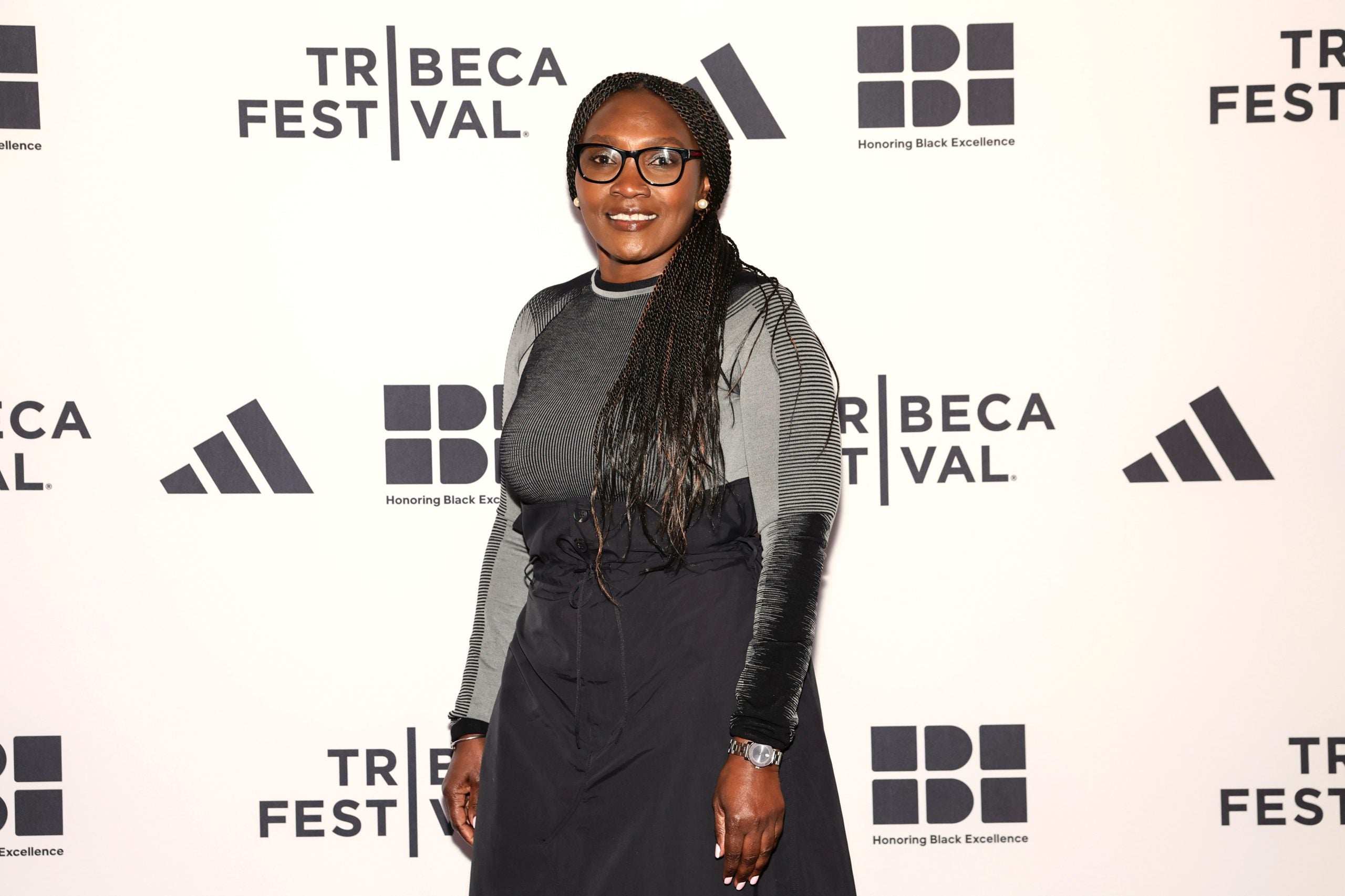
[ad_1]
The year 2020 brought with it great tragedy. In addition to the COVID-19 pandemic, which upended the lives of people around the world, Black people specifically were also protesting violence against our community after the killings of Breonna Taylor and George Floyd, the latter of which was caught on tape, creating uproar and sparking protests everywhere.
Before those incidents, which involved law enforcement, and even before COVID-19 was declared a pandemic and lockdowns became the norm, there was the story of Ahmaud Arbery. The 25-year-old, who ran regularly for exercise and peace of mind, was followed, confronted and shot and killed while doing so on Feb. 23, 2020 in Satilla Shores, Georgia. As Floyd’s death made news around the world, it put attention on what had happened to Arbery. Video of the shooting was made public in May, speeding up the effort to hold his murderers accountable after the initial investigation was handled improperly by local police and the district attorney, leading the Georgia Bureau of Investigation to take over jurisdiction of the case. A little over a year later, in November of 2021, his killers were found guilty of felony murder, aggravated assault, false imprisonment and criminal attempt to commit a felony (the shooter was also found guilty of malice murder). Justice, in a sense, was served.
Arbery’s death impacted many people, none more than his mother, Wanda Cooper-Jones. The loss of her youngest child has changed her life, and as she tells ESSENCE, “the pain of losing my son remains a constant presence in my life.” But the desire to honor him, and the effect that running had on him as he dealt with realities of being a young Black in America, has kept her moving forward with a new purpose.
Cooper-Jones created the Ahmaud Arbery Foundation soon after her son’s passing, with the mission of creating “safe spaces for Black boys to run freely” and obtain physical fitness and mental clarity. The beloved sportswear brand adidas is a sponsor for the foundation, and recently celebrated Cooper-Jones as an adidas HBE, or “Honoring Black Excellence” honoree alongside either other change-making Black women.

In addition to being celebrated at an event in NYC alongside those ladies, she was featured in the brand’s HBE initiative’s “Create With Purpose” documentary series, which was released on March 1 and highlights the work being done and impact being made by Cooper-Jones and three other women through four short films.
To celebrate this special moment, ESSENCE connected with Cooper-Jones to talk about having the support of adidas, the self-care she practices while managing her grief, and how the Foundation, his legacy, is impacting young Black men just like Ahmaud Arbery in the most powerful way.
ESSENCE: What are some of your fondest memories of your son?
Wanda Cooper-Jones: One of my fondest memories is when he made the football team. During his freshman year, he didn’t make the cut during the summer tryouts, but he didn’t let that discourage him. Once school started, he decided to give it another shot. By then, he had become a bit faster, stronger, and had gained a little more weight. When he finally made the team, I could see the sheer happiness—it was truly heartwarming. He was so determined, and he succeeded in achieving his goal.
I love that. So what inspired you to keep his memory alive through the creation of The Ahmaud Arbery Foundation?
Losing Ahmaud early in 2020 was a profound moment for me. It was during a year that brought immense challenges, with the tragic deaths of Breonna Taylor and George Floyd happening around the same time. In the midst of a pandemic, it became clear to me that I needed to create something to ensure Ahmaud’s memory wouldn’t fade away, along with the injustices that occurred in Brunswick, Georgia, on that fateful day, February 23.
Ahmaud, at just 25 years old, faced his own struggles as a young Black man. Running served as a form of therapy for him amidst these challenges. Recognizing the importance of preserving his legacy, I wanted to offer support and resources to young boys who look like Ahmaud who maybe had or who may be encountering the same type of problems. I want to be a resource where these young boys can safely talk about their challenges. My goal was to ensure that Ahmaud’s name and the circumstances of his death would not be forgotten, and that his story would serve as a beacon of awareness and change.
We’ve recently launched a program at Clarkston High School in Metro Atlanta, where we’ve teamed up with the cross-country team. Our partnership with them began just last fall, so we’re still in the early stages of our collaboration. As we navigate this new endeavor, we’re focused on building and expanding our program as we grow together with the school and its students.
How are you doing these days, knowing that justice was received for Ahmaud? That’s very important for families who’ve faced similar tragedies, but what does that change for you as you cope with your loss, if it has changed anything?
Being Ahmaud’s mom is an honor beyond words. Reflecting on the day of his passing, I see the profound impact he’s had, both in the past and present, especially here in Georgia. Ahmaud’s legacy sparked significant changes; we successfully passed the hate crime law and repealed the citizens’ arrest law, which the murderers attempted to use as justification.
These changes are monumental, and fill me with pride. Not only in Ahmaud’s memory but also in the progress we’ve made within our foundation. I’m confident that Ahmaud’s name will continue to resonate and inspire positive change for many years to come. His impact will continue to be felt far and wide.
While I’m grateful for the progress we’ve made, the pain of losing my son remains a constant presence in my life. Every day, I feel the ache of his absence, and despite the changes we’ve brought about, nothing can bring him back. Sundays, in particular, carry a heavy weight for me—they mark both the day I brought Ahmaud into this world and the day I lost him. Each Sunday is a reminder of that profound loss, and it’s a struggle to navigate through those emotions.

How has your self-care work, including through therapy and pampering yourself as you mentioned in your short film, helped you in your journey through grief?
Early on I knew that I had to take care of myself. I recognized the importance of prioritizing my mental well-being to navigate the challenges ahead. With numerous trials looming on the horizon, both federal and state, I understood the necessity of staying strong and resilient. I made a conscious effort to maintain a positive outlook and keep myself encouraged, knowing that difficult days lay ahead. When you look good you feel good so I always try to keep myself up.
What does it mean to you to be an adidas HBE honoree and to work with the beloved brand to spotlight your important work?
adidas has been an incredible source of support since 2020. When we were organizing Ahmaud’s first birthday celebration, they stepped in with nothing but love and backing. I was genuinely surprised and humbled when I learned I was going to be honored by HBE. It felt like my journey had just begun, but adidas recognized the potential of our foundation and felt it was crucial to highlight it.
Having adidas as a sponsor and partner means the world to us. Their support not only allows me to share my story but also helps spread awareness about what happened and what shouldn’t have happened. They’ve provided a platform for my voice to reach places I couldn’t access on my own.
I’m truly grateful to adidas for giving me my flowers, even when I sometimes doubted if I deserved them. Their early recognition has been a constant source of encouragement, fueling my determination to keep pushing forward.
Article continues after video.
[ad_2]
Source link







